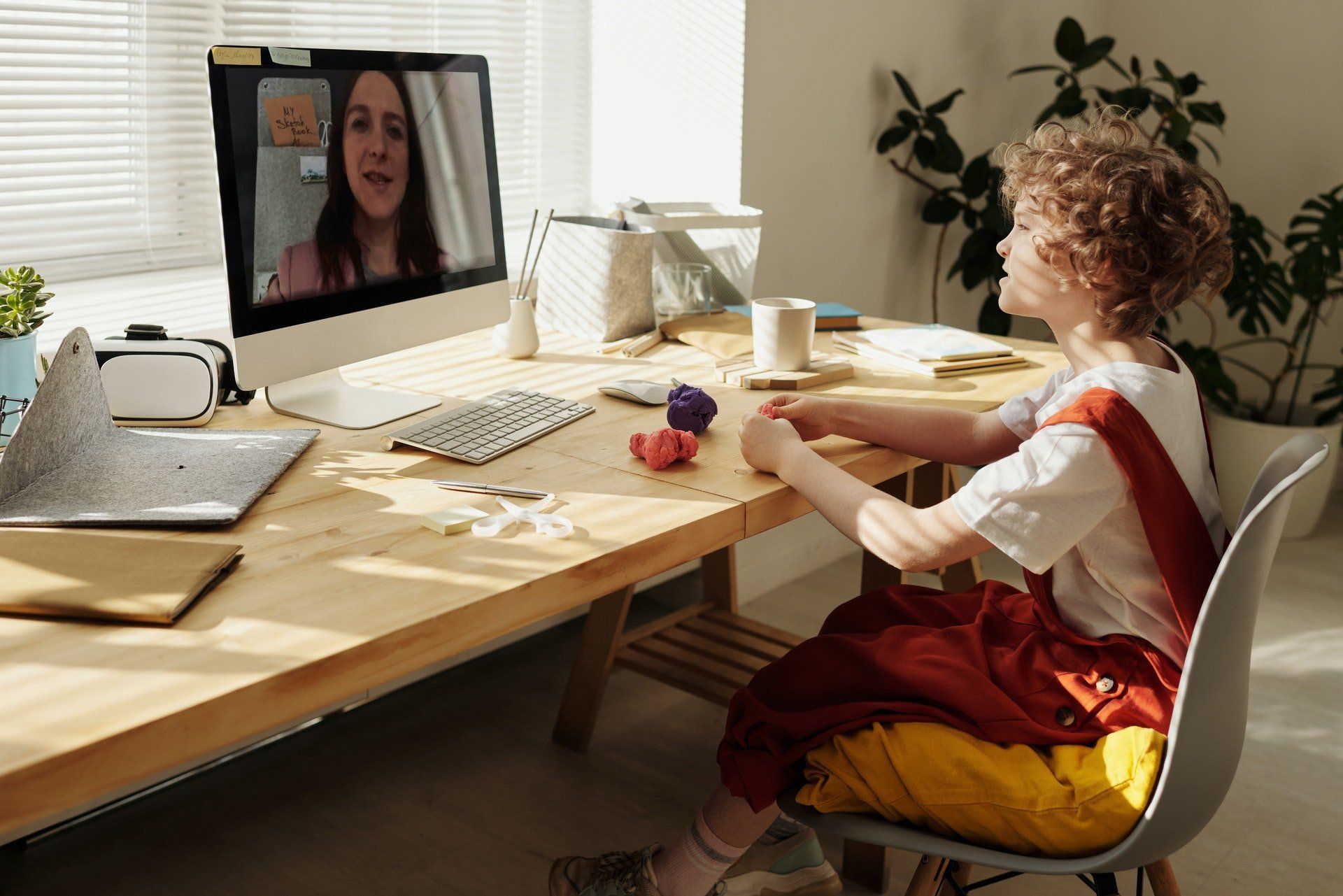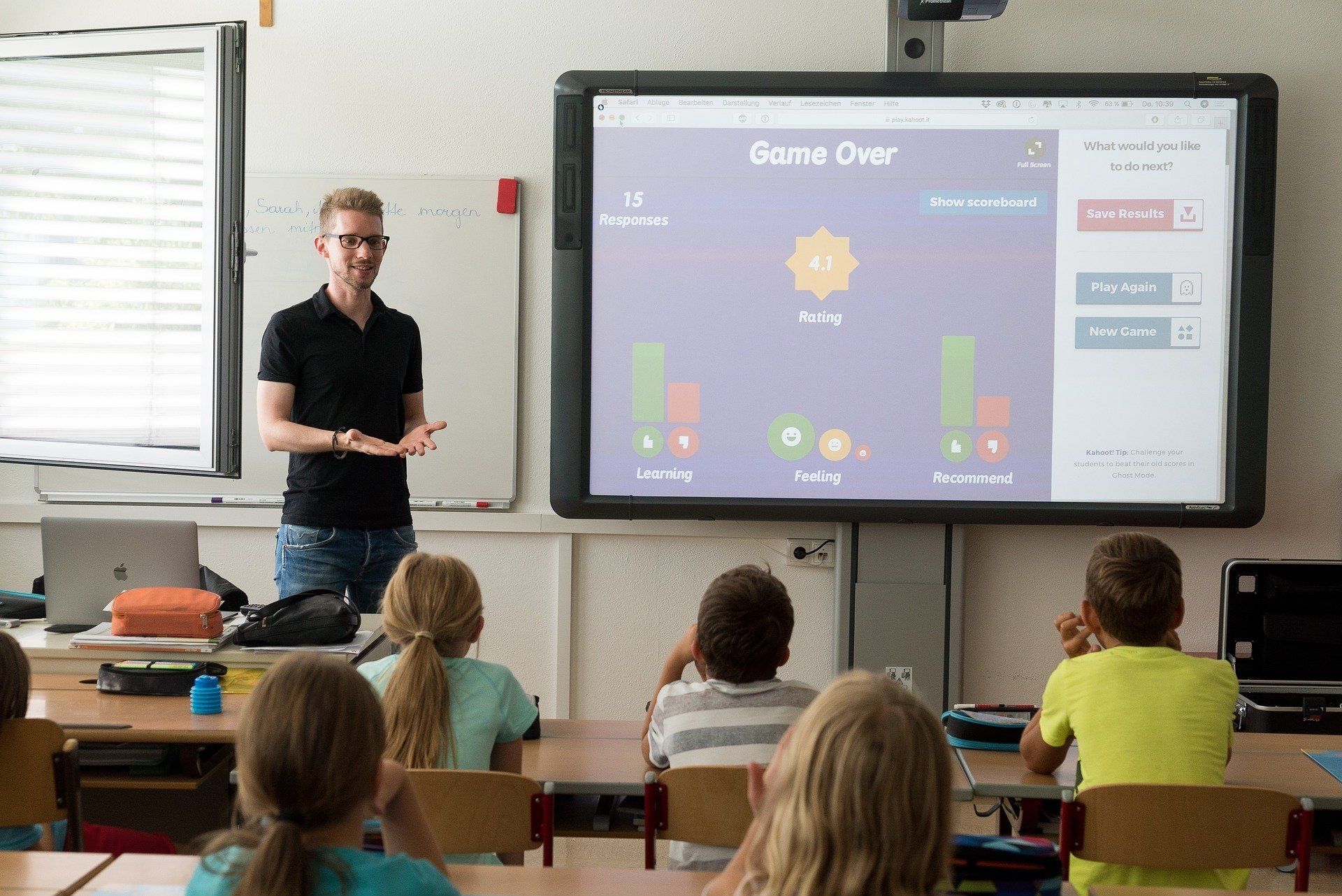Our Blog

There is an argument that a child’s education is best left to their school teachers, but there is also a counter argument that education is an institution where one size doesn’t fit all and children will learn at different rates. In these cases, the level and/or style of education that your primary teacher is delivering may not be appropriate for your child, and they may not respond to it well. Even at primary level, students are starting to develop their own individual educational style and learning speed, and that might not be fully realised in a mainstream environment. From an early age, children start to find that the simple presentation of information may not be the best way for them to learn, but a mainstream teacher may not have the time available to uncover that, let alone adjust their teaching style to accommodate it. That could leave your child at a disadvantage, and affect their learning deeply. So, what can you do about that? Many parents find that the more bespoke and flexible approach of private tuition can provide the answers. Private tutors are able to take their time to really understand their students and find out the best way to educate them. This is a far cry from what they are likely to find in the standard classroom, and can make a child grow in confidence as they find that their own learning style is being embraced. Primary school English tuition follows set rules and standards. A teacher will have a certain curriculum to follow and all of their lessons will be set out for them in a scheme of work (SoW). This is the document that will be followed throughout the year and it is pretty rigid. There is little scope for lessons to move outside of the scope of work and if a child doesn’t fully understand a concept, or needs extra coaching, the teacher may not have time set aside to be able to offer that extra tuition. A private tutor will, however, take the time to get to know your child and understand which areas of curriculum they need further assistance with, and then be in a position to deliver it. But because the private tutor is not tied to a scheme of work, they can focus on the areas that your child needs help with specifically, and make them a more confident learner from an early age. We'd love to show you what we can offer and we're also here for no-obligation support, as well as free assessments for all children.

Has maths changed significantly or did we just fail to listen properly at school? Whatever it is, if your child brings you their maths homework, the chances are that you will just look at it blankly for a few moments and then tell them to go ask their other parent, because you don’t know the answer. Maths at secondary level starts to get serious, and don’t worry if you can’t help your child with it; there are many who cannot. Secondary maths tuition isn’t something that you can just pick up and go with. Maths, together with physics, chemistry, biology, and general science is a subject that you actually have to know to be able to get by in. Unlike other subjects, they are difficult to guess the answer correctly and you actually have to be in receipt of the knowledge to be able to help your child out. As many of us left school some time ago, and haven’t really practiced since then, we usually aren’t in a position to work the answers out, and definitely not to help our children with it. But your child education is their pathway to a good career and really getting on in the world, and you want them to do the best they can, so what are the alternatives? You can leave it to fate and take a pragmatic view that your child will do the best that they can, and that will shape their lives, but that relies on how well your child can do in both coursework and during exams. You can try helping yourself, but you actually run the danger of damaging your child’s education if you fundamentally misunderstand what they are trying to do, or don’t really know the subject. Perhaps a better option is to look at using an online tutor who does know their subject and has a proven track record of helping secondary school students get through their coursework successfully. Secondary-level maths tutors are highly adept at their subject and can teach to any level, which means that they will not only be able to help with your child’s current level of education, but can improve it too! Private tuition may sound extravagant, but it is a system that an increasing number of parents are turning to so that they can ensure their child does well in subjects that they may be struggling with, and excel in those that they are good at. An education is all about taking a subject and making the student comfortable and adept at it, and that is what a private tutor can do. So, the concept is obvious, but how do you locate a suitable tutor who can help with your child’s education? Many parents carry out internet searches using terms such as “GCSE Tuition Centre Near Me”, “Secondary Maths Tuition”, or even “Online GCSE Maths Tutor” and sift through the results of those. These are all very good terms since they will highlight tutor groups who are both available online but run classes that are close to where you live. Getting your child extra tuition is a great way to not only help them enjoy their education, but also to improve grades and set them on the right course for the rest of their lives.

Maths is an essential subject, but it is also one of the most misunderstood and, dare we say it, disliked learning streams. But it is a subject that makes it difficult to progress in life if you don’t have a good understanding of it. We use maths every day and mostly when we are unaware that we are doing so. It is essential that you give your child a strong background in maths, and sometimes, that may mean accessing some extra tuition. Not all maths tutors are the same. There, we’ve said it! Maths is one of those subjects that you cannot really approach in a mediocre or half-hearted way. It is a highly complex technical subject that if you fail to get it, or miss parts out, you may as well not have started in the first place, since it becomes increasingly difficult to catch up. Mathematics has a huge number of interrelated subjects that feed into each other. It is based on a series of laws and absolutes – such as the number line – that have to be fully understood before you can really move on to the next part. It is a subject that is based on pure logic; there are no trick questions and answers can always be worked out using the data that you have been given, and if you haven’t been given it, you can probably find it using the maths tools available to you. But for all of its logic – and perhaps even because of it – people tend to dislike maths, and that can be a problem to learning. Take 100 primary school children and tell them that you are going to do a maths lesson and you may get a very high percentage who smile and embrace it. Maths at a primary level tends to be a lot more sublime and based on everyday factors such as counting fruit or the number of legs on a herd of cows. It’s fun to do and usually accompanied by colourful pictures. Now carry out the same exercise in a secondary school and see how many of the 100 students look unhappy or pensive. A much higher proportion will not want to do a maths lesson because in the transition from primary to secondary education, it has transmogrified into a tough subject that repels many. The main difference is that students in secondary education are now trying to work out the area under a curve, rather than counting cows’ legs, and while it is still fundamentally counting, it is a lot more abstract in nature. And it gets worse with the introduction of other concepts such as sins, cosines, and tangents and other trigonometric functions. The tools required to carry out the work – and sometimes analysis of the answers – become increasingly abstract and begin to lose a connection with the real world. And when students become bored with a subject, they lose the will to learn it properly, and that can be exacerbated if the tutor is hard-pushed to complete the curriculum and move on. Work becomes rushed and when that is added to even the smallest misunderstanding, it starts the student on a course of increasingly poor conception. The next stop is maths anxiety and then actual dislike of the subject. How, as a parent, can you stop this happening? Certainly, you want your child to embrace a subject like maths, but to do that they have to like it, and to like it they have to be taught it properly. Many parents are finding that the only real way of doing this is seek extra tuition, where expert teachers can really enthuse with the student and show them how much fun it can be to learn maths. If you have any questions or concerns, or to find out more about the maths tuition services that we can offer, just click below. Maths needn’t be hard work; we only make it so because we learn it in the wrong way. A fully qualified and enthusiastic maths tutor can turn all of that around and make it a subject that they can enjoy once more, and that will have a huge impact on their post-school life.

Many people talk endlessly about the benefits of learning a second language, but English is such a huge, and immersive language that many fail to learn it properly, as they should do. As of the year 2000, there were approximately 2 billion English speakers in the world and the number is growing steadily. English is fast becoming the international language of science and commerce, and is already used exclusively throughout commercial air flight. Those factors make it imperative for your child to learn English as well as they can, since they are likely to be meeting many other people from different countries who will expect to use the language in a business environment. But secondary school English will only take them so far; if they really want to get on, they will need to excel at the language and that generally means taking extra tuition. Some parents might wonder what the value of hiring a private tutor is when their child gets educated for free at school, but there can be enormous benefits. Private tutors are professionals in their field who have exemplary qualifications, have a strong skill set, and have a high degree of professional experience in their field. Furthermore, a professional tutor will have a creative personality and will be able to construct the kinds of lessons that will appeal to your child and make their learning experience more enjoyable and fulfilling. Getting a secondary English tutor for your child is fairly simple, but you need to determine what your goals are. Your child could continue to learn English as a subject for many years and get progressively better at it, but find that the level they eventually get to is far higher than they actually require, and it becomes wasted education. You have to decide – along with your child – what amount of extra tuition and what the final outcome will be before embarking on a course of learning. It may be that your child isn’t responding well to normal school lessons, and feels that they are not getting the attention that they need to approach their coursework properly, or feel that they may be slipping behind on important concepts. It may be that your child is approaching important exams and isn’t feeling sufficiently confident that they are going to do well. Perhaps your child is doing very well already, but is intent upon getting the best marks possible in this important time in their education. Whatever the reason, you can help your child improve by finding and selecting a professional tutoring company to help guide them through their work and augment their secondary school English tuition. Finding a suitable company can be as simple as carrying out an internet search for “Secondary School English Tuition” or “Secondary English Tuition Centre” and looking through the returned results. You will find a large number of private tutors around, but some companies are regarded as being better than others. Your child’s education matters, and they will never get another chance to do it again, so you need to help them make the best job of it now and secure their future. Private tuition gives your child a stronger education and the confidence to use it, making it a win-win situation from every point of view.

All children are different and that becomes even more apparent when they start to learn and adopt both a style and likes and dislikes. But like it or not, your child has to be educated and you, as a parent, want that education to be the best it can. With many schools struggling under student weight and increasing class sizes, isn’t it time to give your child the educational start that they deserve? Why would you choose a private tutor? As your child is usually offered a full raft of free education from the Government, paying for extra lessons might seem madness, but many parents are turning to paying for extra education, even at primary level. This might seem to be an unnecessary expense, but these parents are simply trying to ensure that their child gets the best education that they can, and are not at risk of falling behind. There are many reasons why a parent will seek out extra tuition, and some very positive with it, but the major reasons that people look to this extra expense are based on helping a child not only become a success, but excel. The main reasons that parents consider hiring a private tutor include: One to One Attention. With even primary school classes reaching 30 plus students, a lone teacher, possibly supported by a teaching assistant will struggle to give each child the attention that they may need, let alone boost their learning with detailed explanations of new concepts. The arena isn’t the ideal place to help a child flourish and the teacher will have to proceed at a brisk pace, just to cover all of the topics in the scheme of work. A private tutor can work at the child’s pace and keep going over areas of contention until the lesson is learned. Tutor proceeds at the Child's Pace. In mainstream schools, if a child fails to really understand a new idea or concept, there is little time for the teacher to keep going over the same material. Learning in these environments is by rote – memorising and practice of examples – and once examples have been completed, it’s usually time to move onto the next subject. However, if your child hasn’t fully understood the concept, they will be disadvantaged. A private tutor will take time to check understanding and will keep working on the same problem until they are happy that the child has really understood, before moving on. Go Beyond the syllabus. A mainstream teacher will have a specific syllabus – noted in their scheme of work and lesson plans – that they need to follow and teach to. However, that syllabus is likely to be the minimum that the child needs to get through exams, rather than being an enriching learning experience. This will prepare them far better for both their secondary education – they may already be aware of some secondary subjects before they are formally taught them – and their adult life through having extra confidence. Flexibility and Convenience. Children are complex creatures and may not be ready to learn when they start a class, leading to poor learning abilities. Some children learn better in the afternoon, or even the early evening, and a private tutor can cater for this rather than forcing them to try and learn when they are least receptive. The flexibility that a personal tutor can bring can help your child grow to enjoy a subject that they might otherwise dislike, and that can be a powerful enabling experience on its own. Obstacles disappear. For a child, even a small obstacle to their learning can appear huge, since they are still learning perspective. What an adult might consider to be a small matter may become a large and non negotiable barrier to a child, and that can seriously impact their learning ability. A private tutor can identify obstacles and then put in place strategies to overcome them. This has the two-fold effect of overcoming the original barrier and teaching your child that such barriers can be overcome, increasing their confidence and making them a much more rounded person, with a positive outlook. There are many more reasons beside these that make employing a personal tutor a great thing, and a wonderful way to really kick-start your child’s journey through education. Find a really great tutor by searching for primary school maths tuition, or primary maths tuition and selecting a company from the ones that come up. Starting your child with a private tutor early will encourage them to learn and make the entire process fun and engaging.

After all of the drama and controversy surrounding GCSE and A Level exam results this year, it’s not surprising that many students are now thinking about resitting some of their subjects. So what are your options? How important are the results? And how does it all work? How can you make sure you get a better result the second time around? Can you even take an actual exam!? We’ve answered some of your most asked questions below! GCSEs are important! They are usually the last time that your general learning will be assessed before you narrow down your focus to more specific areas. The content you learn for your GCSEs (and the skills you pick up whilst doing so) provide the building blocks for your future education, be that A levels or anything else. Not quite getting the grade you want is annoying, but it could also be an indication that you may have missed a few essential skills along the way, and you might be doing yourself a disservice by moving forward without them. Don’t panic! Resitting doesn’t mean that everything else you had planned has to be put on hold. Most schools and colleges will allow you to study for resits alongside other courses, and some A level colleges will take students without a full set of grades, provided that they commit to resitting GCSE whilst studying for their A levels. If you’re an A level student, chances are you selected your A level subjects for a reason - hopefully you picked subjects that you’re interested in - but you likely chose at least a couple of them because you’ll need them to get wherever you want to go next. Thankfully, universities are being super flexible on entry requirements this year. Holding places and often admitting near-miss students who would perhaps have got the right grades had 2020 been a more ‘normal’ year. But if you're not a ‘near-miss student’ or your choice of university really isn't that flexible, then resitting might be the best option for you. Looking ahead to future employment opportunities, it’s often thought that once you have your degree, your GCSEs and A levels won’t matter any more, but this isn’t always true. A levels in particular are known to be very tough, so being able to show high grades here is going to be a huge draw from potential employers. If you’ve spent two years slogging your guts out on a maths A level for example, then you definitely want to be walking away with the grade you deserve - maths and all of the sciences are particularly highly rated! Finally, more than 6% of students drop out of university before completing their degree - what if you don’t like it? Or have to drop out for another reason? In this instance your A levels and GCSEs are going to become much more important than you expected. If you want to resit any exams you’ll need to tell your school or college and they’ll need to agree to submit you for it - if they don’t agree for any reason you can always look to find another school or college that will allow you to take it there. (Just give us a call if you need any help with this.) Once you’re up and running the first thing to do is to speak to your teacher about how you can improve your grade and where things might have gone wrong previously. Given that this year’s results were eventually awarded based on teacher opinions, if you’re unhappy about your grade we know that this could be easier said than done! If you are able to work things through with your teacher, then great! If not, then you might need an external, independent professional (like us!) to help. We offer free assessments of where you’re at now, and can provide the additional tutoring you’ll need to go above and beyond your previous work. The good news is that at the time of writing this article, the Autumn exam series (which WILL be ‘proper’ exams taken in your schools normal setting) is going ahead as planned. Exams will be taken in October and November with results released in December and January. The BEST news is that there’s nothing to lose! If you resit and get a lower grade than before, you’ll still keep your higher grade. It’s true! Most importantly, you need to know that resitting is the right thing for you. Once your mind is made up (or even if you’re having a tough time making up your mind) we’d love to hear from you. Good luck!

You’ve wanted the best for your child but didn’t want to push too hard. You want them to get the greatest results they possibly can and stress over what will happen if they don’t. It’s tough! We hope that all your children got everything that they hoped for, but if they didn’t, here’s some advice on how you can help them through. Let them know that it’s ok to feel a lot of different emotions. Disappointment, worry, guilt, feeling left out - it’s all normal! The noise of results day and the days following probably won’t help if they’re feeling down so encourage them to tune it out a little. Remind them that even though it may seem like they’re the only person feeling this way, they certainly won’t be. Social media is likely to further exacerbate the wave of post-results uproar, so suggest that they consider stepping away from it for a little while. Remind them too to consider what they choose to share. Once it’s out there it can’t be taken back, and sharing something personal only to receive a response that they didn’t want, may only add to their worry. If there was ever a time to actually pick up the phone and have a proper chat with a good friend then this is it! However your child is feeling, you can’t avoid the fact that anyone who knows they were due some exam results is going to ask how they did. Inspire them to own their situation and to be honest about what they got - this will save a lot of worry and stress further down the line. Moreover, admitting their feelings is the signal for others to do the same, which could be the perfect way for them to realise that they’re not alone. Relatives are often the scariest to talk to when things haven’t gone to plan, so consider preparing the most frightening ones in advance of your child seeing them. As for the slightly less scary ones, an open and honest conversation with an adult about something similar that they have overcome, could be exactly what your child needs to hear. We’ve all been there! Start moving forward. Exams will have been the focus of their schooling for a long time, and now that that part is all over (especially if they didn’t get the results they were expecting) they could be feeling a little lost. Find someone that they can discuss their options with. A trusted teacher, careers advisor or another education professional. If resits are an option for them then try to identify what went wrong last time so that they can work on that next time. Look into additional help - you don’t need to spend the earth to access some really excellent tuition. Finally and most importantly teach them to be kind to themselves! Help them to forgive themselves and to focus now on what they can change and not what they can’t. Make sure they eat well, sleep well and spend time doing things that they enjoy. Remind them that everything they’re feeling just goes to show that they care and that they do have the motivation they need to do well! As a parent, teaching them how to handle this will help them handle bigger things in the future. Facing failure and rejection is a life skill in itself, so try to take as many positives from this as you can. Let it all out then take some time out but don’t sit and worry alone. As experts in school and exam tuition, we’ve seen our fair share of highs and lows at results time and we’re here if you need us. We can help with resits, identifying learning gaps, teaching in different ways and much more! Just drop us a message or pick up the phone.

When a child begins to struggle with their school work, you need to get them the help they need as soon as possible. The longer it takes, the bigger the gap becomes, especially since the school learning continues forward and the school may not have noticed or not be able to fund the help needed. How can you tell if your child is struggling? It’s not easy to spot as children aren’t always open about their school performance, especially if they do not feel good about it. Also keep in mind that children can have off days but watch for a pattern or regular issues, the earlier you find out what is behind the change the better. Below are some signs to look for: 1) Your Child Suddenly Refuses to Discuss School If your child ‘shuts down’ and doesn’t want to tell you about what they are learning in school, or how their school day went, it can be a signal that something is not right. This could be subject related so you can identify which subject they are struggling with. 2) Your Child Has a Sudden Major Change in Attitude About School If your child suddenly becomes distant or angry towards school, you can bet there is an issue. Also watch for boredom. Many children will complain they are bored, when in actual fact they don’t understand what is being taught. Look deeper to find the cause. 3) Your Child Spends an Excessive Amount of Time on Homework It is a big warning sign if your child is falling into a pattern of having little to no free time outside of school because they are spending their time on homework. Having said this, you need to know what volume of work the teachers give so you can recognise increased time spent. 4) They Begin Misbehaving at School Sometimes misbehaviour at school is really your child’s way of trying to take attention off the fact they are struggling with their work. If your child is usually well behaved and suddenly begins to have behaviour problems at school, take a look not only at what is happening in their social world but also their academic work as well. 5) Your Child’s Teacher Expresses Concern Sometimes it is easy to dismiss what a teacher is telling you about your child, especially if what the teacher is telling you is different to how your child has always been. Teachers usually have some suggestions in mind what they think might help. The teacher’s thoughts and ideas are information that you can put together with everything else you know about your child to know if they are struggling and some of the options available to help them. 6) Your Child Begins Having Trouble Sleeping or Eating Problems sleeping or eating often result from worry. Your child may be having problems sleeping or eating if they know they aren’t keeping up with the class on their school work. 7) Your Child Receives Low Grades This sign is an obvious one, yet sometimes children and school parents do not want to believe that it is a sign that the child is struggling with the material in school. Some parents feel that bad grades only mean that the child just doesn’t understand the importance of education in their lives yet and will somehow snap out of it and be successful once the child is a little older. The support, encouragement, and advocacy you provide your child when they begin to struggle in school can make a huge difference in your child being able to get back on track. The most important thing to remember is to get help as soon as possible. If the problems persist, reassure your child that everything will be ok and seek help. Organisations such as Elite Tuition Group are a great place to start. We have heard every problem and seen the struggles first hand. We can help reassure a child quickly and get them back on track. Don’t worry on your own, call us on 0333 456 0368.

